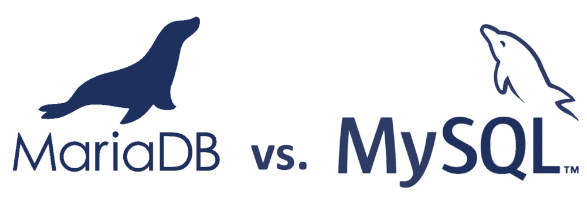
May 4th, 2023
Introduction
MariaDB and MySQL are both widely-used, open-source relational database management systems (RDBMS) that utilize SQL (Structured Query Language) for managing and manipulating data. Both systems share a common origin, as MariaDB was created as a fork of MySQL. However, they have evolved over time and now exhibit some key differences. This article aims to provide a comprehensive comparison between MariaDB and MySQL, addressing their similarities, differences, and helping users decide which is the better option for their specific use cases.
History
MySQL was developed in the mid-1990s by a Swedish company called MySQL AB. It gained popularity as part of the LAMP stack (Linux, Apache, MySQL, PHP/Perl/Python) and quickly became a preferred choice for web applications. In 2008, Sun Microsystems acquired MySQL AB, and in 2010, Oracle Corporation acquired Sun Microsystems. Concerns over the future of MySQL under Oracle's ownership led to the creation of MariaDB in 2009 by the original MySQL developers.
Licensing
Both MariaDB and MySQL are released under open-source licenses. MySQL is distributed under a dual-licensing model, offering the GNU General Public License (GPL) for open-source projects and a commercial license for proprietary projects. MariaDB, on the other hand, is released exclusively under the GPL.
Performance
Performance is a critical aspect to consider when choosing a database management system. Although both MariaDB and MySQL offer high performance, their performance characteristics may vary depending on factors such as workload, hardware, and database configuration. Some users report that MariaDB performs better than MySQL, especially for read-heavy workloads, while others claim that MySQL has superior performance for write-heavy workloads. Ultimately, performance depends on the specific use case and the optimizations applied to each database system.
Features
MariaDB has introduced several features that distinguish it from MySQL:
- Storage Engines: MariaDB includes additional storage engines like Aria, ColumnStore, and Spider, providing more options for specific use cases.
- GIS Functionality: MariaDB offers improved GIS (Geographic Information Systems) functionality compared to MySQL.
- Thread Pooling: MariaDB has implemented advanced thread pooling, which can result in better performance for certain workloads.
- Data Type Support: MariaDB supports additional data types, such as dynamic columns and JSON.
Compatibility
MariaDB aims to maintain compatibility with MySQL, which means that most applications designed for MySQL should work seamlessly with MariaDB. However, as both systems continue to evolve independently, some differences and incompatibilities might arise. It's essential to thoroughly test applications when migrating from MySQL to MariaDB to ensure a smooth transition.
Security
Both MariaDB and MySQL prioritize security, providing features such as data encryption, secure connections, and access controls. MariaDB has introduced some security enhancements, including:
- Role-based access control: This allows administrators to define roles with specific privileges and assign them to users.
- Data masking: This feature helps protect sensitive data by obscuring it from specific users.
Community and Support
MariaDB benefits from a strong and active open-source community, which contributes to its development and offers support through forums and mailing lists. MySQL, while also having an active community, is developed and maintained by Oracle Corporation, which provides official support through its subscription-based services.
Which is Better: MariaDB or MySQL?
The choice between MariaDB and MySQL largely depends on the specific requirements of your project. Consider the following factors when making your decision:
- Licensing: If you prefer a purely open-source solution, MariaDB may be the better option.
- Performance: Test both systems with your specific workload to determine which one provides better performance.
- Features: Evaluate whether the unique features offered by MariaDB, such as additional storage engines, advanced thread pooling, and enhanced GIS functionality, are relevant and beneficial to your project.
- Compatibility: Ensure that your existing applications and tools are compatible with the chosen database system or can be easily adapted.
- Security: Assess the security features provided by both systems, and consider whether MariaDB's role-based access control and data masking are crucial for your project.
- Community and Support: Determine the level of community and professional support you may require and which database system offers the resources you need.
In conclusion, both MariaDB and MySQL are powerful and reliable database management systems. The best choice depends on your specific project requirements and priorities. By carefully evaluating the factors outlined above, you can make an informed decision about which RDBMS is the right fit for your needs.
Are you looking for expert advice on choosing the right database management system for your project or need assistance with hosting and managing your MariaDB or MySQL databases? Don't hesitate to reach out to the experienced professionals at Sectorlink. We are ready to provide you with the guidance and support you need to ensure the success of your project. To get in touch with Sectorlink, simply visit https://www.sectorlink.com/contactus and submit your inquiry. Our team of specialists will be more than happy to assist you with all your database and hosting needs.
